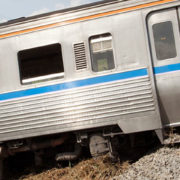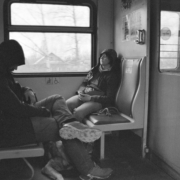The Invisible Wounds: Understanding the Psychological Impact of Railroad Accidents in Alabama
The rumble of the tracks, and the piercing train whistle – they’re familiar sounds in Alabama. But for railroad workers, those sounds can sometimes carry an echo of unseen trauma. Railroad accidents, while thankfully not an everyday occurrence, leave a lasting psychological toll that can derail lives and shatter a sense of safety.
For those on the front lines of the railroad industry, the risk of experiencing a traumatic event is a constant companion. When accidents happen, the focus often turns first to the physical injuries – the broken bones, the lacerations, the immediate medical needs. But as the dust settles and the healing begins, another type of wound often emerges – the psychological scars that can haunt survivors long after the tracks are cleared.
Witnessing Trauma – Types of Psychological Effects
When a train leaves the tracks, the most immediate focus is on physical injuries. But the psychological wounds can be equally devastating. Railroad workers involved in accidents, even those who escape physical harm, are at high risk of developing:
- Post-Traumatic Stress Disorder (PTSD): This condition can bring intense flashbacks, nightmares, and hypervigilance, making it feel like the accident is happening over and over. Triggers like the sound of a train whistle or the sight of a railroad crossing can send a survivor right back to the moment of trauma.
- Acute Stress Disorder: Similar to PTSD, symptoms emerge shortly after the trauma and may resolve within a month. This can involve feeling numb, detached, or having difficulty remembering important aspects of the trauma.
- Depression and Anxiety: Persistent feelings of sadness, hopelessness, and relentless worry are common after a traumatic event. Railroad workers may struggle with guilt, questioning if they could have done something to prevent the accident, or feel a profound sense of loss – of coworkers, of a sense of safety, of trust in the job they once loved.
The emotional burden, sometimes referred to as “carrying the weight,” can manifest in sleep problems, difficulty concentrating, and strained relationships. It’s a heavy load to bear, especially when the culture of the railroad industry often emphasizes toughness and self-reliance.
Alabama’s Railroad Landscape
To understand the scope of this issue within our state, it’s important to know that Alabama has a significant railroad network. Major companies like CSX Transportation, Norfolk Southern Railway, and Amtrak operate lines throughout the state, connecting cities like Birmingham, Mobile, and Huntsville and serving as a vital part of our economic infrastructure.
Railroad workers face a heightened risk of mental health struggles. This is a recognized crisis within the industry, with a 2021 study revealing that one in five rail workers experience issues like anxiety and depression. The frequent occurrence of train derailments – averaging over 1,700 per year between 1990 and 2021 – underscores the potential exposure to traumatic events. While annual fatalities are thankfully below 200, each incident leaves a lasting ripple effect of trauma that goes beyond those directly involved.
Where to Find Support after a Railroad Injury
If you or someone you love is struggling with the emotional aftermath of a railroad accident, know that you are not alone. Help is available:
- Alabama-based Therapists: Look for mental health professionals specializing in trauma and PTSD. Resources like Psychology Today can help you find therapists in your area who understand the unique challenges faced by railroad workers.
- Railroad Union Support Groups: Unions like SMART Union may provide peer support groups specifically for railroad employees. Talking with others who have been through similar experiences can provide a sense of understanding and community.
- National Resources: Organizations like the National Center for PTSD offer helplines and online resources for those struggling with trauma.
Remember, seeking help is a sign of strength, not weakness. Just as you would get medical attention for a physical injury, taking care of your mental health is crucial for overall well-being.
Fighting for Your Rights: Why Skilled Legal Representation Matters
Railroad workers are protected by a unique federal law called the Federal Employers’ Liability Act (FELA). Unlike typical workers’ compensation claims, FELA requires you to prove some degree of fault on the part of your railroad employer to receive compensation. This can make FELA claims incredibly complex.
At Burge and Burge, our Alabama attorneys understand the nuances of FELA and have a proven track record of successfully fighting for railroad workers’ rights. We know how to gather evidence, build strong cases, and negotiate with railroad companies to secure the compensation you deserve – not just for physical injuries, but also for the often-overlooked emotional trauma.
We understand that pursuing a legal claim while also dealing with psychological distress can feel overwhelming. That’s why we handle every aspect of the case, from investigating the accident to dealing with the railroad company, so you can focus on your recovery. Our goal is to make the legal process as stress-free as possible for you.
The Road to Healing
Recovery from trauma takes time and dedicated effort. Here are some key points on the healing journey:
- Therapy: Trauma-focused therapies like Cognitive Behavioral Therapy (CBT) or Eye Movement Desensitization and Reprocessing (EMDR) can be highly effective. These treatments can help you process the traumatic memories, develop coping strategies, and gradually restore a sense of safety and control.
- Support Network: Lean on loved ones, join support groups, and don’t isolate yourself. Connecting with others who understand what you’re going through can provide invaluable comfort and reassurance.
- Lifestyle Changes: Prioritizing self-care is essential. This includes getting enough sleep, eating a balanced diet, engaging in regular exercise, and practicing stress reduction techniques like deep breathing or meditation. Small, positive changes can make a big difference in your overall resilience.
Remember, healing is not a linear process. There may be good days and bad days, steps forward and steps back. Be patient and compassionate with yourself. With time, support, and the right resources, it is possible to reclaim your life after a railroad trauma.
For Alabama’s railroad workers, the psychological impact of accidents is a heavy burden to bear. But it’s a burden that no one should have to carry alone. By understanding the types of emotional trauma that can result, knowing where to find support, and having skilled legal advocates on your side, you can start to build the path toward recovery.
At Burge and Burge, we’re committed to fighting for the rights of railroad workers who have suffered both physical and emotional wounds. We understand the complexities of FELA claims and know how to secure the compensation and resources needed for holistic healing.
If you or a loved one has been involved in a railroad accident, don’t face the legal battle alone. Contact us for a free consultation to discuss your case and start the path towards securing the justice and support you need. Together, we can work towards a future where the rumble of the tracks no longer carries the echo of trauma, but the promise of a safer, more supported journey ahead.
Contact Burge & Burge at 205-947-2962 or message us online for a free consultation and case assessment. We are here to guide you through every step of the legal process with skill and compassion.
The Invisible Wounds: Understanding the Psychological Impact of Railroad Accidents in Alabama

Explore the unseen psychological impact of railroad accidents in Alabama. Discover how trauma affects railroad workers and find out how to seek help and legal support with Burge & Burge. Contact us at 205-947-2962 for a consultation.
Service Type: Railroad accident lawyer












Leave a Reply
Want to join the discussion?Feel free to contribute!